Fritextsökning
Artiklar per år
Innehållstyper
-

Heidi Stensmyren is eager for new challenges in the biotech industry
management roles,” she says.
-

Here are the pharmaceutical companies best prepared for AI
How well prepared are pharmaceutical companies in the field of artificial intelligence? That is what a new analysis has tried to evaluate.
-

Life Science Sweden heads to the Oresund region! ‒ Hello there Michael Linnell
Life Science Sweden’s The Future of Swedish Danish Life Science and New Updates in Drug Formulation & Bioavailability meetings are coming up soon. We asked Michael Linnell, project manager for Life Science Sweden’s event portfolio, a few short questions.
-

Bioarctic granted Japanese patent for Parkinson’s disease candidate
Bioarctic has been granted a Japanese patent for its antibodies targeting Parkinson’s disease.
-
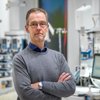
“Unfortunately, we are not strong when it comes to conducting clinical trials”
The number of company-initiated clinical trials conducted in Sweden has been declining in recent years. In mid-March, a government inquiry was presented that aimed to find answers and solutions to this downward trend. One of the proposals was a stable, sustainable and funded model for collaboration.
-

Double up for Korbinian Löbmann
This year, Korbinian Löbmann will moderate the New Updates in Drug Formulation & Bioavailability meeting in Copenhagen for the fifth time. Furthermore, he will also moderate The Future of Swedish & Danish Life Science congress in Lund for the first time.
-

CROs in drug development: "We use our expertise to speed up the process
Consultancy firms have become an increasingly important part of drug development. “It’s a trend and a business model that works, and we see no indication that it will change,” says Helena Lüning of the industry organisation ASCRO.
-

Why the world renown researcher Marc Tessier-Lavigne resigns as Stanford´s president
the winners and punished the losers”. Here is the background of the story which has shaken the American scientific community over the summer.
-

Uppsala-based company wins important patent dispute – but the decision is subject to appeal
A US district court has ruled in favour of Orexo in a dispute over the patent protecting the Swedish company’s drug Zubsolv, developed for treating patients with opioid addiction. However, the opposing party, the Indian company Sun, is not giving up and has filed an appeal.
-

Förlikning i babypuderskandal stoppas av domstol
Det amerikanska läkemedelsbolaget Johnson & Johnson har för en andra gång fått avslag av en domare om en konkursansökan för dotterbolaget LTL Management, mest känt som enheten bakom det omtalade babypudret som misstänkts ha orsakat cancer i en rad fall.
-

The Swedish Life Science Office: “We lost in both coordination and manpower”
Since the turn of the year, the Swedish government’s life science office has operated at a lower capacity. Life Science Sweden has spoken to Pontus Holm, Departmental Secretary at the office, about the ongoing work.
-

Neanderthal gene variants may cause Viking disease
A new study suggests that the so-called Viking disease, which affects the hand function in many older people, may be linked to gene variants inherited from Neanderthals.
-

AstraZeneca moves to brewery quarters in central Copenhagen
AstraZeneca in Denmark is moving its business into central Copenhagen and the old brewery quarters in Carlsberg Byen.
-
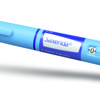
Nanexa develops depot formulation of the diabetes and obesity drug Saxenda
Uppsala-based company Nanexa has signed an agreement with a German contract research company to start a clinical study with a monthly depot of liraglutide. The drug is currently approved for the treatment of diabetes and obesity.
-

Nanoparticles to help detect pulmonary disease
Nanoparticles behave in a certain way in the air. Using this knowledge, researchers at Lund University have developed a new measurement method for lung examinations based on the phenomenon.
-

This is the future location of the new national innovation cluster
Mölndal and Goco Health Innovation City will be the site of a new national innovation cluster for advanced therapies. The business community and the Swedish government are splitting the costs of the project, which is expected to produce new treatments
-

Rapid developments in AI – “All stakeholders are struggling to understand it”
Artificial intelligence is being discussed more and more, and developments in the field are moving rapidly. As the Swedish Medical Products Agency testifies, keeping up with developments is not easy.
-

Egetis lägger ned buddiskussionerna
Svenska läkemedelsutvecklaren Egetis Therapeutics har gått ut med att diskussionerna om ett potentiellt förvärv av företaget nu har lagts ner.
-

Norwegian company wins bidding battle for Sensidose
The lengthy battle to acquire medical device company Sensidose is apparently over. Generic medicines company EQL Pharma is pulling out, selling its shares and leaving the way open for Norwegian company Navamedic.
-
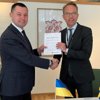
Swedish and Ukrainian Medical Product Agencies sign an agreement
The Directors-General of the Swedish and Ukrainian Medical Products Agencies have signed a cooperation agreement.
-
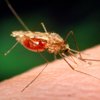
A new malaria vaccine offers hope but much more research is still needed
There has long been no vaccine against malaria, but there have been breakthroughs in recent years. However, it is still unclear how we become immune to the malaria parasite, and this is a vital piece of the puzzle for creating effective vaccines, says
-

Study: Chat GPT is more empathetic than doctors
The AI tool Chat GPT is not only more accurate when it comes to answering patient questions – the chatbot is also perceived as almost 10 times more empathetic than real doctors, a new study reveals.
-
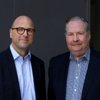
Looking for greater Nordic cooperation – “We have Norway and Finland in our sights”
How can Medicon Valley Alliance bring the big pharmaceutical companies back to the organisation? Life Science Sweden discussed this topic and others with the cluster organisation’s new radar pair.
-

New report: Fewer PhDs in life sciences
A new report from Vinnova suggests that competency returns in the life science sector are declining.